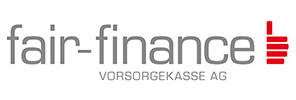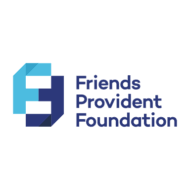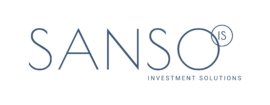Who we are
The Shareholders for Change network (SFC) is a group of institutional investors involved in active engagement with corporations to enhance a common social agenda as an essential element of their role as bond – and shareholders.
In addition SFC will engage with institutions, proxy advisors, associations and other public or private organisations to support the development of sustainable financial markets and a global economy aligned with the Sustainable Development Goals (SDG) Framework.
Members of the SFC network are linked by a common vision as well as their shared values across a wide range of issues. These shared values are the focus of their common engagement activities and are an essential part of members’ own business practice.
The Shareholders for Change network is involved in active engagement mainly with European corporations to enhance a social commons agenda through share- and bondholding.
The network’s first goal is to organise collaborative participation in European companies’ Annual General Meetings (AGMs) as well as coordinated voting or submission of questions to their boards and managements related to issues such as:
– workers’ rights and human rights;
– fiscal practices and tax justice;
– CO2 emissions and climate change.
Besides the participation in AGMs, the dialogue with companies through the submission of letters or the coordination of meetings and calls, is also of utmost importance.
The Shareholders for Change network:
- has a very light governance structure and focus on a limited range of specific issues;
- in contrast to other existing networks or coalitions, SfC understands itself as a “facilitating hub” more than a structured organisation;
- at the heart of the work of SfC stands the engagement activity and not the organisational structure;
- aims to mobilise the power of investors, financial market players and civil society actors demonstrating to corporations the many benefits deriving from the adoption of sustainable and responsible conduct;
- has started to operate in the AGM season 2018 launching 15 engagement projects that are still ongoing. The projects are presented in the Engagement Report 2018, published on 29 June.
About us
The Shareholders for Change network (SFC) is a group of institutional investors involved in active engagement with corporations to enhance a common social agenda as an essential element of their role as bond – and shareholders.
In addition SFC will engage with institutions, proxy advisors, associations and other public or private organisations to support the development of sustainable financial markets and a global economy aligned with the Sustainable Development Goals (SDG) Framework.
Members of the SFC network are linked by a common vision as well as their shared values across a wide range of issues. These shared values are the focus of their common engagement activities and are an essential part of members’ own business practice.
Members

Bank für Kirche und Caritas eG (Germany)
Cooperative bank founded in 1972 and based in Paderborn. The catholic church bank provides financial products and services for catholic, ecclesiastical, and charitable institutions and their employees in Germany.

Ecofi Investissements, Groupe Crédit Coopératif (France)
Asset management company of the Crédit Coopératif Group. It is a pioneer of responsible finance, with the creation of the first sharing fund in Europe in 1983. It manages around €9 bn. 100% of its open mutual funds are SRI, including solidarity and sharing investments.

Etica Sgr, Gruppo Banca Etica (Italy)
Asset management company of the Banca Etica Group. It was founded in 2000 and is based in Milan. It manages €3.5bn according to ESG criteria. It’s the only asset management company to be exclusively dedicated to SRI in Italy.

Fair-finance Vorsorgekasse (Austria)
Provident fund created in 2010. It is based in Vienna and manages €460m according to ESG criteria. It is owned by 17 private partners and counts the German GLS-Bank and Concordia insurance among its shareholders.

Fondazione Finanza Etica (Italy)
Cultural foundation created by Banca Etica in 2003. It is based in Florence. Since 2008 it coordinates critical shareholding initiatives in Italy, targeting companies in the energy, defence and insurance sectors.

Fundación Finanzas Eticas (Spain)
Created in 2003 as “foundation for responsible investments and savings” by a number of grassroots organisations. It is based in Bilbao and is part of the Banca Etica Group. In 2017 it launched its first engagement project with SfC.

Meeschaert Asset Management (France)
French asset management subsidiary of the Meeschaert Group, created in 1935 and based in Paris. It is a pioneer in SRI in France and manages ca. €12bn according to ESG criteria.

Ethos. Swiss Foundation for Sustainable Development (Switzerland)
Ethos is composed of 230 Swiss pension funds and other tax-exempt institutions. Ethos was founded in 1997 and aims at promoting socially responsible investment (SRI) as well as a stable and prosperous socio-economic environment that safeguards the interests of civil society today and in the future.

Friends Provident Foundation (UK)
Friends Provident Foundation is an independent charity that makes grants and uses its endowment towards a fair, resilient and sustainable economic system that serves society. It connects, funds, invests and shares learning to shape an economy that works for all.

Forma Futura Invest
Forma Futura Invest Inc. is an independent asset management company. It invests responsibly in listed companies. All its clients’ funds are invested in a manner that foster a sustainable quality of life and, at the same time, achieve a fair market return.

ABS (Alternative Bank Schweiz)
Alternative Bank Switzerland (ABS) is a sustainability-oriented bank. ABS emphasizes ethical principles and transparency instead of maximum profits and promotes projects in the area of affordable and ecological housing, renewable energy, organic farming and social organizations.

Sanso IS (France)
SANSO Investment Solutions is an independent boutique dedicated to responsible investment, providing a diversified range of funds, dedicated investments solutions, discretionary portfolio management. Sanso IS encourages the improvement of ESG integration practices engaging with partner asset managers.

Ethius Invest (Switzerland)
Ethius Invest, based in Lucerne, Switzerland, is an independent asset management company, founded in 2018 and completely dedicated to socially responsible investments.
Since the very beginning of its activity, Ethius engages companies and proxy advisors according to a set of environmental, social and governance guidelines.

Phitrust (France)
Phitrust is an independent asset management company, created in 1999. Since 2003, it has focused on the development of a responsible investment strategy. The company manages assets for a total of ca. € 100 Mn and actively engages major listed companies (CAC 40/Eurostoxx) to influence their environmental and social practices.

Inyova (Switzerland)
Inyova is a digital impact investing platform with offices in Zurich and Frankfurt. Founded in Switzerland in 2017, Inyova expanded into Germany in 2021 and is fully licensed for all European markets. The company manages over EUR 170m in assets.

GLS (Germany)
GLS Investments is a wholly owned subsidiary of GLS Bank based in Bochum, Germany. Founded in 2021, it disposes of an highly experienced in-house ESG research team and currently manages 7 mutual funds and mandates for institutional investors.

Wheb Asset Management (UK)
WHEB is an independent asset management company based in London, UK, exclusively dedicated to sustainable and impact investing since its creation in 2009. The company is a certified BCorp since 2016 and committed to becoming a Net Zero Carbon business by 2025.
Supporters
Organizations aligned with the Association’s goals but unable to formally join may explore affiliation options at the Shareholders’ Meeting.
Supporting members:
do not possess voting rights;
can engage in Association activities;
participate as observers in at least one annual meeting.
Terms of partnership, including potential cash or service contributions, are determined by the Shareholders’ Meeting. The board ensures supporter compliance, with admission approved by founding members.
Governance
The following are the bodies of the association:
- the Shareholders’ Assembly;
- the Committee of the Founding Members;
- the Board;
- the Chairperson;
- the Auditor.
The Shareholders’ Assembly
The Shareholders’ Assembly is the highest decision-making body of the Association. The Assembly is responsible for passing resolutions on the general guidelines and directives of the Association.
The Committee of Founding Members
The Committee is composed of the seven founding members. The Committee implements the general policy guidelines of the Shareholders’ Meeting and passes resolution on the requests for admission of members
The Board
The Board is composed of three members: the Chairperson, the Deputy Chairperson, and one member who is part of the Assembly and appointed by the Assembly itself.
The Board:
oversees the financial budget, prepares annual financial statements and forecasts with the Secretariat for Assembly approval;
manages human resources;
approves internal regulations, coordinates Association functions, and manages member relations with governing bodies.
The Chairperson
The Chairperson is elected by the Shareholders’ Assembly with absolute majority. He or she serves in office for a period of three years. The Chairperson is the legal representative of the Association.
Auditor
The Auditor is elected every three years by the Shareholders’ Assembly.
The Auditor performs duties aimed at overseeing the administrative accounting activities of the Association.
Issues we care about
HUMAN RIGHTS
All human beings are born free and equal in dignity and rights (Universal Declaration of Human Rights, Art. 1). Everyone is entitled to all the rights and freedoms set forth in the Universal Declaration of Human Rights, without distinction of any kind (Art. 2)
ETHICAL FINANCE
Access to capital and credit should be responsibly granted to all individuals, particularly those most in need, through varied instruments such as microcredit and other mechanism.
HEALTH
The enjoyment of the highest attainable standard of health is one of the fundamental rights of every human being without distinction of race, religion, political belief, economic or social condition (WHO Constitution, 1946).
WORKING CONDITIONS
Industrial relations and working conditions should be inspired by: freedom of association and right to collective bargaining; abolition of forced labour; elimination of child labour; prohibition of discrimination of employment and occupation.
PEACE AND SECURITY
Disarmament and arms limitation are essential to enhancing international peace and security, as well as for the economic and social advancement of all peoples.
ECONOMIC DEVELOPMENT
Economic development shall be pursued by meeting the needs of the present without compromising the ability of future generations to meet their own needs (Burtland Report, 1987).
ANIMALS AND BIOLOGICAL DIVERSITY
Animals are “sentient beings”, therefore animal welfare should not be infringed unless necessary for the well-being of human life.
Biological diversity has an intrinsic value and its conservation is a common concern of mankind (UN Convention on Biological Diversity, 1992).
ENVIRONMENT
Environmental decision-making should be participatory, with environmental justice at the basis of all actions. Environmental information must be accessible to all (Aarhus Convention, 1998).
CLIMATE
Change in the Earth’s climate and its adverse effects are a common concern of humankind and are largely a consequence of human activities (UN Convention on Climate Change, 1992).
SUSTAINABLE DEVELOPMENT
Enterprises should contribute to economic, environmental and social progress with a view to achieving sustainable development and respect for human rights (OECD Guidelines for Multinational Enterprises, 2011).
TAX JUSTICE
Addressing inequality through the promotion and implementation of tax justice is a precondition to tackling inequality and poverty.
STANDARDS FOR CORPORATE PRACTICES
Transparency and disclosure practices, particularly social, environmental and governance issues, are essential elements for companies seeking to develop positive relations with their investors and other stakeholders.
Legal and regulatory compliance, with the letter and spirit of rules, is a minimum standard for all corporate practices.
